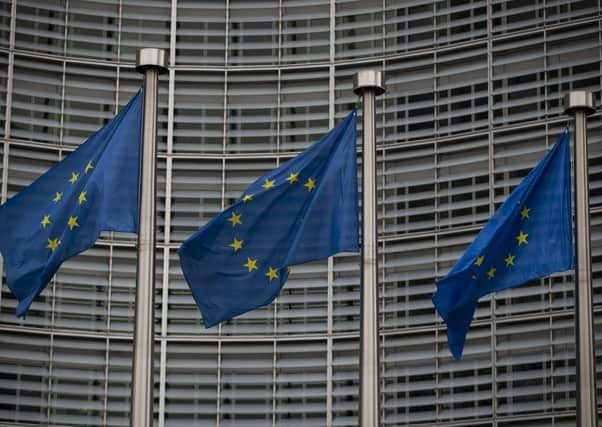Kate Hoey: You can have unfettered access to the EU single market or UK market – but not both


It is beyond dispute that, in regards NI, Brexit has not been ‘done’, but rather could more accurately be described as having been ‘undone’.
Northern Ireland remains in practice part of the EU single market. It is treated as the entry point into, and thus part, EU territory.
Advertisement
Hide AdAdvertisement
Hide AdGreat Britain is treated as a foreign country in relation to NI, whereas NI is treated as part of the regulatory territory of the EU. This is the fundamental cause of the Irish Sea border and all the constitutional harm it brings.
This all flows from the fatal double-concession by the UK Government that NI had to retain unfettered access to the EU single market, and interconnected with that, that there could be no Irish land border.
That created the necessity for NI to be required to follow EU law (otherwise how would the EU single market be protected?) and for there to be a border in the Irish Sea to prevent goods from GB, which are not subject to EU law, flowing into the EU single market.
This meant (and continues to mean) in the words of Lord Justice McCloskey in our protocol legal challenge, “NI belongs more to the EU market than the UK market”.
Advertisement
Hide AdAdvertisement
Hide AdThat this creates an economic united Ireland in large parts of our economy is beyond any doubt.
There may be an argument as to just how much of our economy is subsumed into alignment with the Irish Republic and is divorced from the UK, but that is a question of degree rather than whether such a constitutional harm has been
inflicted. It obviously has.
It would be an extraordinary situation if unionism found itself in the terrain of arguing that all is fine because we are only partly in an economic united Ireland, but still half or a quarter in the UK economically.
That would essentially resolve to arguing that NI should be semi-detached from the UK, and have some form of hybrid constitutional status.
Advertisement
Hide AdAdvertisement
Hide AdIt is important to understand that this is the constitutional price that must be paid for unfettered access to the EU single market.
There is no ‘equal’ dual access; if you want unfettered access to the EU single market, then you must be semi-detached from the UK market (otherwise it would amount to the whole UK having unfettered access to the EU - and that is impossible) with a border between GB and NI.
That, it seems to me, is a wholly incoherent position to adopt for any unionist. As Sammy Wilson MP, Jim Allister KC and Jamie Bryson have all set out in detail and committed to writing in the past number of days, you can have unfettered access to the EU single market, or you can be a full part of the UK, but you can’t have both.
Their arguments, each formulated in different ways but aligned in substance and central conclusion, are demonstrably correct.
Advertisement
Hide AdAdvertisement
Hide AdIn equal terms, you cannot have unfettered access to the EU market (which brings with it the imposition of EU law and an Irish Sea border for the reasons I have outlined in summary form) and consistency with Article 6 of the Acts of Union 1800 which has been, and I hope remains, the central constitutional test for all unionists and indeed the first of the DUP’s seven key tests.
Article 6 of the Acts of Union means what it says. The statutory provision is the constitutional guarantee, you cannot subjectively deduce a meaning which is inconsistent with the text of Article 6 itself.
The meaning, and the requirements for consistency with that central constitutional provision, is set out in detail in the judgments of the court in our protocol legal cases.
I urge all unionists to familiarise themselves with that material.
Advertisement
Hide AdAdvertisement
Hide AdIf unionism were to return to Stormont as implementers of the central concepts of the protocol and its embedding framework, and worse still acted as advocates (which, other than openly admitting to abject surrender, would be necessary to ‘save face’) for the constitutional hybridity and imposition of EU law that flows from unfettered access to the EU single market, then the Union will never be restored.
This issue is fundamental, and alas unionism faces a fundamental choice.
This is not a dispute between purity and pragmatism, this is about the very essence of the Union itself and whether unionism will accede to self-inflicting irreparable constitutional harm.
Any deal which doesn’t fully restore NI to the Union by ending EU law, forgoing unfettered access to the EU market and removing the Irish Sea border (all necessary components of restoring the Acts of Union) isn’t consistent with unionism’s objectives or the DUP’s mandate.